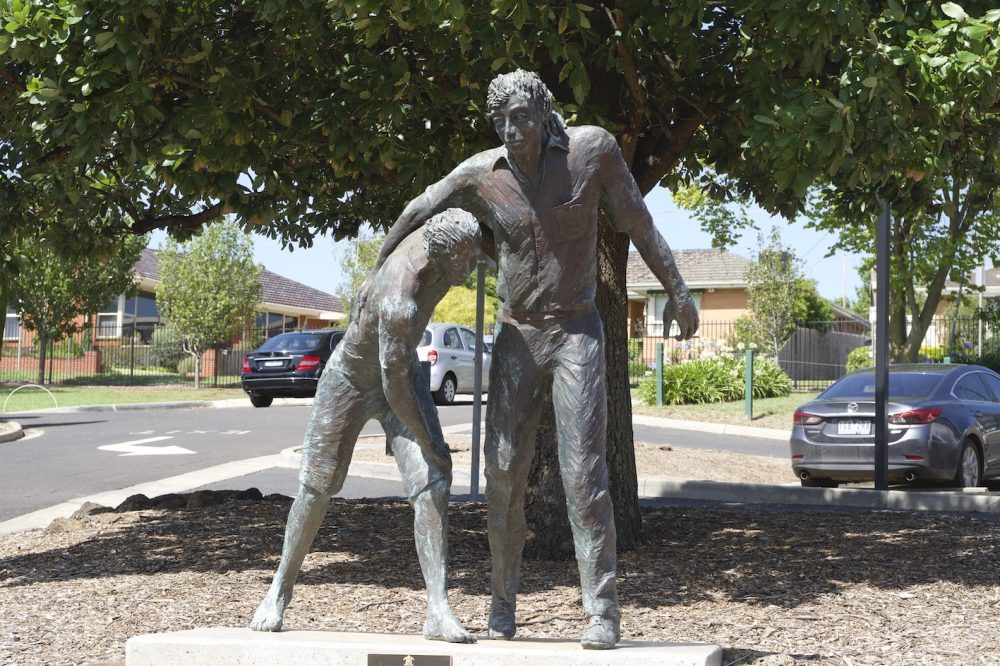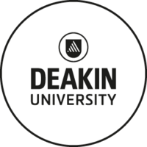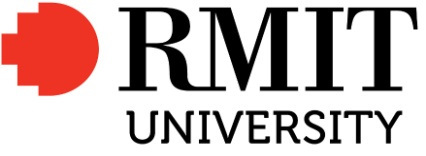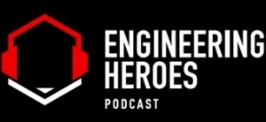
Newsletter
From the Principal
13 February 2020
Earlier today, we held a full school assembly to recognise ANZAC day and pay our respects as a community.
It is always a humbling listening to the recounts of soldier's experiences and provides us perspective on how lucky we are to not have to endure the horrors the diggers went through.
Lest We Forget
In celebrating Edmund Rice Day next Friday 6 May, the students of St Bernard's College participate in a 10km walk along the Steele Creek Trail and the Maribyrnong River to show our solidarity for Brother Beausang Catholic Education Centre in Nairobi, Kenya. This week, our College Captain Andre Lesnjak and Academic Captain Nicholas Helmers sent best wishes to ERCEC and gave an overview of how SBC celebrates Edmund Rice Day through a recorded video.
In the coming weeks, 12 students across Years 7-12 will be participating in the Edmund Rice Education Beyond Borders 'Global Classroom Project', where they will have the opportunity to video conference with schools around the world (including BBCEC) to strengthen our bonds with the global Edmund Rice community.
As of May 2020, the Uniform Shop will be operating by appointment only. This will help alleviate lengthy queues during peak periods.
With the phasing in of the new Sun-smart bucket hats next term, we will be selling the remaining stock of SBC baseball caps for $8 each. Please note that the caps will not be available to purchase from October onwards but students will still be permitted to wear them.
Click here to make an appointment
If you know the sizes of the items you require, visit https://shop.sbc.vic.edu.au/ to order online.
For all other uniform enquiries, or to volunteer in the uniform shop, please email rbuhagiar@sbc.vic.edu.au or phone 9289 1176.
ADF Gap year applications now open:

WORK EXPERIENCE INDUSTRY ENGAGEMENT UDPATE FOR YEAR 10s (20-24 JUNE)
Following on from the Yr 10 Parent Information evening held on the 10th of February, we have had a rush of student enquiries. As noted last year (when we started the planning) and on the 10th of February - 20-24 June might seem like a long way away. However, the earlier the students begin their planning, the greater the chances they have of securing a meaningful placement. Students can find the Industry Engagement Information book on their Year Level MYSBC page. Click Careers/Year 10.
Secured a placement and yet to pick up the Work Experience Arrangement Form (including the COVID 19 document)? These can be picked up from the careers office.

Career as a Firefighter
Every workday has meaning. Every workday makes a difference. Firefighting is suited to people with a genuine desire to serve the community, and who thrive on working closely in a team. Firefighters need to -
have appropriate all-round strength and fitness
exhibit problem solving skills
demonstrate high level interpersonal skills
genuine desire to work with the community
have appropriate physical and psychological capability
There is a diverse range of roles available to firefighters, with great opportunities for specialisation and career progression.
Emergency response activities may include:
suppression of all types of fires
search and rescue
high angle rescue
road accident rescue
emergency medical response (EMR)
marine Response
industrial accidents and hazardous material handling and storage incidents
assisting other agencies in emergencies
fire investigation analysis
Community resilience activities may include:
educating the community about fire safety
working with diverse community groups, across all age groups, to promote emergency prevention and preparedness activities through a variety of community resilience programs.
Other activities may include:
training - skills maintenance and acquisition
involvement in exercises with the public through evacuation drills
installing smoke alarms for senior Victorians
participation in joint emergency training exercises (Victoria Police, Ambulance Victoria, Forest Fire Management and SES)
building inspections
checking water supplies, cleaning vehicles and maintenance of fire station.
Find out more, including salary scales and work hours, by browsing Victorian Fire Services.

A student will need at tax file number if he/she starts work (part-time and full-time) and all students planning on a tertiary education require one when they start.
Importantly, current Year 12 students are reminded that they cannot enrol in a CSP (Commonwealth Support Place) course at university without a Tax File Number, so it is worthwhile getting an application submitted early!
Students must apply for a TFN online and have their identity verified through an interview at a participating Australia Post office.
To apply and also to find out about participating Post Offices, visit TFN Application

Monash Information Evening: Webinar
Monash Information Evenings are the perfect opportunity to have your questions answered on everything you wanted to know about undergraduate study at Monash.
Topics to be covered include –
diverse study and discipline areas
undergraduate course types, such as the comprehensive and specialist courses, double degrees, and pathway programs
international opportunities including study abroad and overseas tours
SEAS and the Monash Guarantee
accommodation options, both on and off campus
Date: Tuesday 8 March 2022
Time: 6.30pm – 8.00pm
Location: online (zoom)
Register for the event at Monash Information Evening: Webinar

DEAKIN UNI CAMPUS TOURS TERM I HOLIDAYS
Really exciting that we can finally get back to visiting a physical campus, as opposed to a virtual visit. For students with an interest in a course in Deakin, we are strongly recommending a visit! Especially for the year 12s, this will save some valuable time later in the year when they will be busy attending other open days.
To register: https://www.deakin.edu.au/student-life-and-services/events/campus-tours

Virtual Tours
Students are invited to take a virtual tour of RMIT’s campuses and facilities. Students can get a taste of what life is like as a university student at RMIT, including the best spots to eat, study and hang out. The suite of videos covers the Melbourne campuses, with a look inside specific interest areas including media, art, engineering, and health science.
Take a tour here.
Tuckwell Scholarship for 2023
Australian National University (ANU) launched the Tuckwell Scholarship Program in 2013. The Tuckwell Scholarship Program at the ANU is the most transformational undergraduate scholarship program in Australia. A Tuckwell is not just about a students’ intellect. It is also about their desire and determination to use their natural abilities to realise their full potential so that they can make a difference in the world. All up one could say, this is no ordinary scholarship!
So, Tuckwell Scholar students will receive:
$22,350 per annum (2021 rate) (increasing with inflation) for each year of the length of their undergraduate degree, to cover on-campus residential costs, books, and general living expenses
priority access guaranteed to ANU-approved student accommodation
an annual allowance of up to $2,000 to assist with their move to Canberra and to support two annual return journeys (e.g., airfares) between their home and the University for each year of their degree. The allowance will be dependent on the proximity of their family home to ANU.
an allowance to help cover the transport costs for your parents to attend Commencement Weekend at the start of the program, and
an ANU Sports Centre membership for the length of their degree.
Scholarships are awarded based on four criteria:
academic potential and achievements to date;
other significant achievements to date, of any type;
demonstration of the Attributes of a Tuckwell Scholar; and
Applying for a Tuckwell Scholarship is a three-stage process which commences with an initial application from yourself and a recommendation from a schoolteacher. Applications will begin in March 2022.
For more information browse Tuckwell Scholarship.

Career in Veterinary Nursing
The Good Careers Guide * states that Veterinary Nurses provide support to veterinarians in the management and care of animals receiving medical and surgical treatment.
The Personal requirements for a Veterinary Nurse include -
Enjoying working with animals
Able to handle animals with confidence and patience
Able to make accurate observations
Having good communication skills
Having good organisational skills
Being able to work as part of a team
Being caring and understanding
Some of the tasks a Veterinary Nurse might have to do include –
Providing animal care advice, and preparing, delivering, and reviewing animal care education programs.
Assisting Veterinarians to administer anaesthetics and oxygen during operations.
Holding animals to allow examination and treatment by Veterinarians.
May act as receptionist, accept payments, and undertake clerical work.
Giving medications to animals.
Placing animals in cages for recovery from operations and monitoring their condition.
Maintaining stock control and records.
May perform diagnostic laboratory tests.
Preparing instruments and handing them to the Veterinarian.
Cleaning and sterilising examination tables and equipment.
* The Goods Careers Guide – Veterinary Nursing
Veterinary Nurses need to have a minimum of a Certificate IV in Veterinary Nursing, although qualifications can include diplomas and bachelor degrees. Some of these can be found at Box Hill Institute, Melbourne Polytechnic, and La Trobe University.

Pathway to Physiotherapy
In 2021, Monash University introduced the Doctor of Physiotherapy, a three-year graduate-entry degree based at the Peninsula campus. This offers students with a passion for physiotherapy another pathway to a qualification, if unsuccessful in their application to the Bachelor of Physiotherapy (Honours).
A Monash Bachelor of Biomedical Science, Science, or Health Sciences degree is a great foundation for the Doctor of Physiotherapy. Students must also meet specific unit requirements.
Find out more at Doctor of Physiotherapy.
University Clinical Aptitude Test
The University Clinical Aptitude Test (UCAT) is an admissions test used by the UCAT ANZ Consortium of universities in Australia and New Zealand for their medical, dental, and clinical science degree programs. Universities requiring the UCAT are listed at this link - Universities requiring the UCAT. Students intending to apply for courses requiring the UCAT at any of these universities are reminded that they will need to book a test.
Bookings will open on 1 March 2022 and close 17 May 2022. The testing dates will be from 1 July 2022 to 12 August 2022.
Students who are preparing for entry into any of these courses are encouraged to familiarise themselves with the format of the test at UCAT Test Format and the practice tests and preparation material provided at UCAT Preparation.
Find out more at UCAT.

Economics Explored
What does a career in economics actually look like? Whether you’re interested in government, private enterprise or social sciences, the world of economics is as vast as it is inspiring.
The University of Queensland has a useful online resource for students interested in economics. Students are encouraged to visit Economics Explored and watch a couple of interesting YouTube clips and also read through some Q & A, and also some valuable

Engineering Heroes Podcasts
Engineers Australia is at the helm of the Engineering Heroes podcast series. Students keen on a career in engineering may find these podcasts about the engineering challenges in today’s society of interest. Engineers discuss their work life and the issues they are dealing with.
There are various categories of podcasts including aerospace, building services, and computer systems.
Visit Engineering Heroes and sign up for regular updates.

Career as a Telecommunications Engineer
Jobs and Skills WA states that telecommunications engineers design, test and build the various technologies that allow people to communicate over distances.
They may work in fields such as telephone and internet networks, radio and television broadcasting and satellite communications.
They design telecommunication networks, deciding on the technology to be used and where cables or broadcasting equipment needs to be placed, and oversee installation.
Telecommunication engineers may also be responsible for testing and repairing faults.
Telecommunications engineers usually work for the major telecommunications companies, or for large organisations with private communication networks, such as remote mine sites, for example, the Pilbara region. Telecommunications engineers often work in offices, where they can use computers to monitor networks and broadcasting equipment remotely. However, some travel may be required to visit sites throughout the state, particularly when installing new equipment or repairing faults.
There is strong future growth in this industry, and it is also a well-paid career.
To become a telecommunications engineer, students usually need to study a degree in engineering, majoring in electronics and communication engineering, or a related field. Students may also choose to complete postgraduate study to specialise in electronic and communication engineering.
In Victoria, RMIT and Swinburne universities both offer courses relating to telecommunication engineering.
![]()
Bachelor of Cyber Security
Gain in-demand skills to protect data and information systems from hackers, with a Bachelor of Cyber Security at Victoria University.
Students study information technology, preparing them for a career in software development or the networking industry. Then they focus on specialised units in cyber security – gaining the expertise needed to apply for specialised roles.
Students learn essential skills in cyber-threat detection and risk management, including:
cyber security technologies (such as digital signature, public key infrastructure, virtual private networks, firewalls, intrusion detection and data encryption)
ethical hacking and digital forensic data collection
vulnerability analysis and control
enterprise security
cyber security regulation, policies, and laws
software development
network design.
Find out more at Cyber Security at VU.
New Master of Climate Science from 2022
We know that climate change is the biggest threat we face. We need climate scientists who can unravel how we got here, build models to predict where we’re going, and communicate those learnings effectively. We need people who understand the science behind climate change and can translate this to policy and action across every industry.
With the above mentioned in mind, the University of Melbourne is introducing the Master of Climate Science. The Master of Climate Science is a two-year program that is topical, interesting, and something that the University has deep, long-standing expertise in. The course is linked to the ARC Centre of Excellence for Climate Extremes, which means students will be learning from scientists who have made significant contributions to the latest IPCC report – an assessment report detailing knowledge on climate change, its causes, potential impacts, and response options. Students in the Master of Climate Science can complete an industry-based internship or a research project and can choose between specialisations in Climate Dynamics and Climate Science.
Entry into this post-graduate program will be -
undergraduate degree in physics, chemistry, mathematics, computer science, engineering, environmental science, and
undergraduate mathematics equivalent to Calculus 1 (Calculus 2 may be necessary for some electives).
Find out more at Master of Climate Science.

Bachelor of Arts Reimagined
Swinburne’s Bachelor of Arts is changing, majorly from 2022.
Instead of choosing from a range of single arts subjects, the university has woven disciplines such as politics, history and sociology together into new themed majors including Politics, Power and Technology; Climate and Social Justice; and Ethics and Technology. So, students can connect their passion for a cause, to a course and a meaningful career.
Arts students will look at humanity and the complex issues the world is facing from multiple angles and look for innovative solutions. In addition, students will develop skills such as critical and creative thinking, problem solving and digital literacy – all of which are sought after in a range of industries now and in the future.
Students can choose a Bachelor of Arts in a double degree, including a new Arts double with Psychological Sciences to add depth to their chosen field or industry. A reminder too, that with Work Integrated Learning guaranteed as part of the course, students will graduate with real industry experience and ready to turn their passion into a profession.
Students can find out more at New Bachelor of Arts.
News from La Trobe University
New Pathways to the Bachelor of Education Programs
The Diploma of Teacher Education and Associate Degree of Teacher Education are the new pathways at La Trobe to the Bachelor of Education programs. These pathways replace the Bachelor of Educational Studies. Both pathway courses build the qualifications to transition directly into the second year of the Bachelor of Education (Primary), Bachelor of Education (Secondary) or Bachelor of Early Childhood and Primary Education with full credit.

Career in Horticulture or Landscape Gardening
The Good Careers Guide indicates that:
landscape gardeners design and construct garden landscapes or renovate existing gardens. They use a wide range of gardening skills to create a landscape that is aesthetically pleasing as well as functional. Landscape gardeners work at a variety of sites, including public and private parks and gardens, indoor facilities and newly developed housing estates as well as industrial complexes. They may also construct fences, trellises, pergolas, ponds, ferneries, barbecue areas, play structures and garden furniture.
horticultural tradespersons maintain plants and planted areas, construct horticultural features and apply treatments to enhance plant growth and control pests.
horticultural assistants undertake a range of tasks involving the cultivation, growing, harvesting and maintenance of trees, plants and gardens.
These jobs require a person to have a love of the outdoors and to be content to work in all sorts of weather conditions. Equally, the roles involve practical and mechanical activities.
![]()
New Bachelor of Criminology and Criminal Justice degree
The Thomas More Law School has introduced the Bachelor of Criminology and Criminal Justice.
Already proving popular with students in 2022, this course explores the causes of antisocial behaviour and develops the knowledge and expertise needed to make a valuable contribution in the criminal justice sector. Students gain a deep understanding of the complex causes and impact of crime, and the legal and social policies that keep society safe. The degree includes studies in forensic psychology, forensic science, cybercrime, border protection and biosecurity and understanding violence and trauma. All criminology students also undertake a community engagement in the third year of the course.
Find out more at Bachelor of Criminology and Criminal Justice.

After a difficult two years of COVID the Welcoming Community Group invite you to come and celebrate once again.
Don't miss out! There are only 150 tickets available for this event.
Tickets are $105 per person and all inclusive
- Champagne on Arrival
- Three course dinner with drinks.
- DJ Entertainment.
Friday 17 June 2022 6:30 PM - 11:00 PM
Recently two Old Collegians of St Bernard’s celebrated jubilees in the Christian Brothers with Terry Burke celebrating 70 years as a Brother and Laurie Collins 60 years. At a recent jubilee celebration Br Clem Barrett spoke the following words in appreciation of their life and work as Brothers:
Their stories are very similar: suffice to say they both studied at St Bernard’s College in Essendon, learned about their call through our training programmes, took a first step and eventually made a lifelong commitment to being a Christian Brother, undertook significant studies and committed themselves to their ministries - even though, there are similarities: both started their teaching in other states, Tasmania and then Western Australia for Terry and Western Australia for Laurie. They were actually together in community in Trinity in Perth in 1967 – but have spent most of their time in communities and schools in Victoria, spending significant time in leadership (Principal), St Bernard’s and Chanel for Terry and Parade and St Patrick’s Ballarat for Laurie. Both spent time in mission, Terry in Lautoka and Laurie in Nairobi. Eventually, there was a withdrawal from full-time school ministry but not from being actively involved in supportive activity – I am not sure either could define “retirement”. They even support the same football team (go Bombers)!
Cutting of the Jubilee Cake - from L to R: Brothers Peter Ellis, Laurie Collins, Terry Burke, Sean McManus and Tim Moloney

To all of our wonderful volunteers in the canteen! You are required to have had your 3rd Covid (booster) vaccination to attend canteen. If you are yet to receive your 3rd shot, could you please let us know by emailing canteen@sbc.vic.edu.au Thank you so much for your ongoing support, it is greatly appreciated, Mary and Helen.


